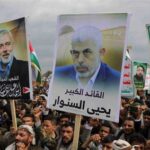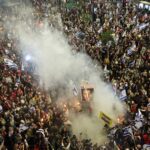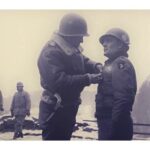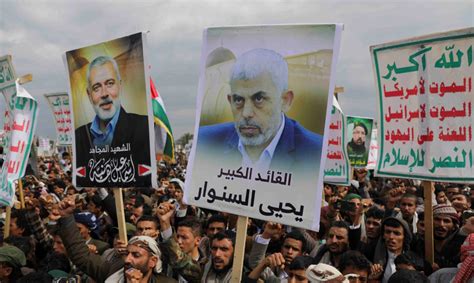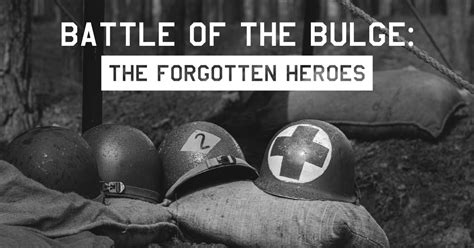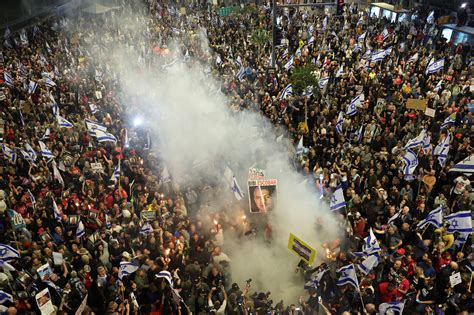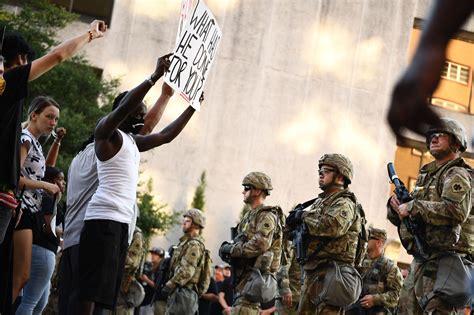
A white protester’s impassioned speech at an Immigration and Customs Enforcement (ICE) demonstration in Boston has garnered significant attention online, with a video of the address showing the speaker criticizing the agency’s practices and appealing to National Guard members present to consider their role in enforcing immigration laws. The demonstrator, identified as a self-described patriot, called on the guardsmen to question their orders and recognize the potential for historical parallels between their actions and those of figures who later faced condemnation for enforcing unjust laws.
Boston Protest Sees “Patriot” Challenge National Guard on ICE Enforcement
A video circulating online captures a white protester delivering a fervent speech at a demonstration targeting Immigration and Customs Enforcement (ICE) in Boston, Massachusetts. The protester, who identified himself as a patriot, directly addressed National Guard members present at the demonstration, urging them to reconsider their role in enforcing immigration laws. The speech, lasting several minutes, has sparked widespread debate and discussion online.
The protester’s core argument centered on the moral implications of enforcing laws perceived as unjust. He emphasized the potential for historical judgment, drawing comparisons to individuals who, throughout history, followed orders that were later deemed morally reprehensible. “At what point is it okay to blindly follow orders? That’s what you guys are doing,” he stated, directly addressing the National Guard members. “You have to think for yourselves. You have to think about history. When are you going to say no?”
He specifically targeted the separation of families, a controversial aspect of ICE’s enforcement policies under previous administrations. “How many families are you going to rip apart?” he asked, his voice rising with emotion. “How many kids are you going to put in cages? Is that what you signed up for? Is that the oath you took?” The protester’s remarks resonated with many online, who praised his courage and conviction. However, others criticized his approach, arguing that National Guard members are obligated to follow lawful orders.
The demonstration itself appears to have been organized by local activist groups protesting ICE’s detention and deportation practices. While details regarding the specific focus of the protest are limited in the initial reports, demonstrations against ICE have become increasingly common in recent years, often centered around concerns about human rights, due process, and the impact of immigration enforcement on communities.
The video footage shows the National Guard members standing silently as the protester speaks, with no visible reaction to his words. It is unclear whether the guardsmen were deployed specifically to monitor the protest or were present for other reasons. The National Guard has not yet released an official statement regarding the incident.
The incident highlights the ongoing tensions surrounding immigration enforcement in the United States and the ethical dilemmas faced by individuals tasked with carrying out these policies. The protester’s speech serves as a reminder of the importance of individual conscience and the potential for citizens to challenge authority when they believe that injustice is being perpetrated. The long-term impact of the speech remains to be seen, but it has undoubtedly sparked a conversation about the role of law enforcement in a democratic society and the responsibility of individuals to question the orders they receive.
Expanding on the Context: ICE and Immigration Enforcement
Immigration and Customs Enforcement (ICE) is a federal law enforcement agency under the Department of Homeland Security (DHS). It is responsible for enforcing immigration laws within the United States, including the apprehension and deportation of undocumented immigrants. ICE’s mission is to protect the United States from cross-border crime and illegal immigration that threaten national security and public safety.
ICE’s enforcement activities have been a source of considerable controversy. Critics argue that the agency’s policies have led to the separation of families, the detention of asylum seekers, and the violation of due process rights. The “kids in cages” reference in the protester’s speech alludes to a policy implemented under the Trump administration where children were separated from their parents at the border as part of a “zero tolerance” policy towards illegal immigration. This policy drew widespread condemnation from human rights organizations, religious leaders, and political figures from both parties.
Defenders of ICE argue that the agency is essential for maintaining national security and enforcing the rule of law. They argue that ICE is responsible for deporting individuals who have committed crimes, pose a threat to public safety, or have violated immigration laws. They also argue that ICE’s enforcement activities deter illegal immigration and protect American jobs.
The debate over ICE’s role and policies is deeply polarized, reflecting broader divisions in American society over immigration. The protester’s speech reflects this polarization, highlighting the moral and ethical concerns that many people have about the agency’s actions.
The Role of the National Guard
The National Guard is a military reserve force composed of citizen-soldiers who serve on a part-time basis. They are under the command of the governors of their respective states, but can be federalized and deployed by the President of the United States in times of national emergency.
The National Guard has been deployed to the U.S.-Mexico border on multiple occasions to assist with border security. Their role typically involves providing support to Customs and Border Protection (CBP) agents, such as conducting surveillance, providing logistical support, and assisting with administrative tasks. The National Guard is not typically authorized to directly engage in law enforcement activities, such as making arrests or detaining individuals. However, their presence can free up CBP agents to focus on these tasks.
The deployment of the National Guard to the border has also been controversial, with some critics arguing that it militarizes the border and contributes to a climate of fear and intimidation. Others argue that it is a necessary measure to address the challenges of illegal immigration and drug trafficking.
In the context of the Boston protest, the National Guard members were likely deployed to maintain order and ensure the safety of both the protesters and the general public. Their presence may also have been intended to deter any potential acts of violence or property damage. The protester’s speech directly challenged the National Guard members’ role in this context, asking them to consider the moral implications of their actions and to question whether they were contributing to unjust policies.
Ethical Considerations and the Duty to Obey Orders
The protester’s speech raises important ethical questions about the duty to obey orders, particularly in situations where those orders may be perceived as unjust. This is a longstanding debate in military ethics and jurisprudence.
The Nuremberg trials, held after World War II, established the principle that individuals cannot be excused from responsibility for their actions simply because they were following orders. The “Nuremberg defense,” as it became known, was rejected by the tribunal, which held that individuals have a moral and legal obligation to disobey orders that violate fundamental principles of human rights and international law.
However, the duty to obey orders is also a fundamental principle of military discipline. Without obedience to lawful orders, a military organization cannot function effectively. Military personnel are trained to follow orders without question, and disobedience can be punished severely.
The tension between these two principles – the duty to obey orders and the obligation to disobey unjust orders – creates a complex ethical dilemma for military personnel. There is no easy answer to the question of when it is permissible or even required to disobey an order. The decision must be made on a case-by-case basis, taking into account the specific circumstances and the potential consequences of both obedience and disobedience.
The protester’s speech attempts to apply this ethical framework to the specific context of immigration enforcement. He argues that the National Guard members have a moral obligation to disobey orders that contribute to the separation of families and the detention of children. He challenges them to consider the long-term consequences of their actions and to ask themselves whether they will be judged favorably by history.
The Power of Protest and Public Discourse
The Boston protest and the protester’s speech highlight the importance of protest and public discourse in a democratic society. Protest is a fundamental right guaranteed by the First Amendment to the United States Constitution. It allows citizens to express their grievances, challenge government policies, and advocate for change.
Public discourse is essential for a healthy democracy. It allows for the open exchange of ideas, the critical examination of policies, and the formation of public opinion. The protester’s speech is an example of public discourse in action. It raises important questions about immigration enforcement and the role of law enforcement in a democratic society.
The fact that the speech has been widely circulated online demonstrates the power of social media to amplify voices and to facilitate public debate. Social media platforms can provide a space for individuals to share their views, organize protests, and hold government accountable.
However, social media can also be used to spread misinformation, incite violence, and polarize public opinion. It is important to be critical of the information that we encounter online and to engage in respectful dialogue with people who hold different views.
Analyzing the Protester’s Rhetoric
The protester’s speech employs several rhetorical devices to persuade his audience. These include:
- Direct address: He directly addresses the National Guard members, using phrases like “you guys” and “is that what you signed up for?” This creates a sense of personal connection and makes it harder for them to dismiss his message.
- Emotional appeals: He uses emotionally charged language to evoke feelings of empathy and outrage. Phrases like “rip apart families” and “put kids in cages” are designed to appeal to the guardsmen’s sense of morality and compassion.
- Historical analogies: He draws comparisons to historical figures who followed orders that were later deemed morally reprehensible. This is intended to make the guardsmen question whether their actions will be judged similarly in the future.
- Rhetorical questions: He asks a series of rhetorical questions, such as “At what point is it okay to blindly follow orders?” These questions are not meant to be answered directly, but rather to prompt the guardsmen to think critically about their role.
- Patriotic framing: He identifies himself as a patriot, which may be intended to appeal to the guardsmen’s sense of national pride and duty. By framing his argument in terms of patriotism, he attempts to make it more palatable to a potentially skeptical audience.
The effectiveness of these rhetorical devices will depend on the individual listener. Some National Guard members may be persuaded by his arguments, while others may be unmoved. However, the speech is undoubtedly a powerful example of persuasive rhetoric.
The Broader Context of Immigration Policy and Debate
The events in Boston occur within a broader, highly contested landscape of immigration policy and debate within the United States. For decades, immigration has been a deeply divisive issue, shaping elections, influencing political platforms, and sparking heated discussions across the country.
Key points of contention include:
- Border Security: Differing views exist on the level of border security necessary and appropriate. Some advocate for increased funding for border walls, technology, and personnel, arguing that a strong border is crucial for national security and preventing illegal immigration. Others prioritize more humane and less militarized approaches, emphasizing the need for comprehensive immigration reform that addresses the root causes of migration and provides pathways to legal status for undocumented immigrants.
- Deportation Policies: The extent and nature of deportation policies are also a source of significant debate. Some support strict enforcement of immigration laws, advocating for the deportation of individuals who have committed crimes or violated immigration laws, regardless of their ties to the community. Others argue for more nuanced approaches, prioritizing the deportation of violent criminals and those who pose a threat to national security, while providing pathways to legal status for long-term residents, essential workers, and those with strong family ties in the United States.
- Pathways to Citizenship: The availability and accessibility of pathways to citizenship for undocumented immigrants is another major point of contention. Some oppose any form of amnesty or pathway to citizenship, arguing that it would reward illegal behavior and encourage further illegal immigration. Others support comprehensive immigration reform that includes a pathway to citizenship for undocumented immigrants who meet certain requirements, such as paying taxes, learning English, and passing a background check.
- Economic Impact of Immigration: The economic impact of immigration is a subject of ongoing debate. Some argue that undocumented immigrants depress wages, strain public resources, and take jobs away from American citizens. Others contend that immigrants contribute to economic growth, fill labor shortages, and pay taxes, benefiting the economy as a whole.
- Humanitarian Concerns: The humanitarian aspects of immigration policy are often overlooked in the political debate. Concerns about the treatment of asylum seekers, the separation of families at the border, and the conditions in detention centers are frequently raised by human rights organizations and advocates for immigration reform.
The protester’s speech directly engages with these broader debates, particularly the ethical and humanitarian concerns surrounding ICE’s enforcement policies. By challenging the National Guard members to consider the moral implications of their actions, he is attempting to inject a sense of humanity and compassion into a highly polarized and often dehumanizing debate.
Potential Repercussions and Future Developments
The immediate and long-term consequences of the protester’s speech remain to be seen. Several potential developments could unfold:
- Internal Review within the National Guard: The National Guard may conduct an internal review of the incident to determine whether the guardsmen responded appropriately to the protester’s speech. The review could examine the guardsmen’s training on handling protests and demonstrations, as well as their understanding of the ethical considerations involved in enforcing immigration laws.
- Increased Scrutiny of ICE Policies: The incident could lead to increased public scrutiny of ICE’s policies and practices, particularly those related to family separation and the detention of asylum seekers. Activist groups and advocacy organizations may use the incident to galvanize support for immigration reform and to pressure policymakers to change ICE’s enforcement priorities.
- Legislative Action: The incident could prompt legislative action at the state or federal level. Lawmakers could introduce legislation to limit the National Guard’s role in immigration enforcement, to provide greater oversight of ICE’s activities, or to create pathways to legal status for undocumented immigrants.
- Shift in Public Opinion: The video of the protester’s speech could influence public opinion on immigration and the role of law enforcement. The speech may resonate with some people who are already critical of ICE’s policies, while others may be persuaded to reconsider their views.
- Further Protests and Demonstrations: The incident could inspire further protests and demonstrations against ICE and other government agencies involved in immigration enforcement. Activist groups may organize rallies, marches, and other forms of civil disobedience to raise awareness of their concerns and to pressure policymakers to take action.
- Impact on the Protester: The protester may face repercussions for his actions, depending on the specific laws and regulations in place. He could be arrested for disorderly conduct or other offenses, or he could face other forms of legal or social sanctions. However, he may also be celebrated as a hero by those who support his views.
Conclusion:
The speech by the “patriot” at the Boston ICE protest has undeniably ignited a national conversation. It underscored the deep divisions and strong emotions surrounding immigration enforcement. Whether the protester’s words will translate into tangible changes in policy or public opinion remains uncertain, but the incident serves as a potent reminder of the power of individual voices to challenge authority and spark critical dialogue on issues of profound social and ethical importance. The unfolding narrative is one to watch as the debate around immigration continues to shape the nation’s political and social landscape.
Frequently Asked Questions (FAQ)
-
Who was the protester and what was the main point of his speech?
- The protester, who identified himself as a patriot, delivered a speech at an ICE demonstration in Boston. His main point was to challenge the National Guard members present to reconsider their role in enforcing immigration laws that he believes are unjust, particularly concerning family separation. He urged them to think for themselves and not blindly follow orders, drawing parallels to historical examples of individuals who faced condemnation for enforcing immoral laws.
-
What is ICE and why are its practices controversial?
- ICE (Immigration and Customs Enforcement) is a federal law enforcement agency responsible for enforcing immigration laws within the United States. Its practices are controversial due to concerns about the separation of families, the detention of asylum seekers, potential violations of due process rights, and the overall impact of its enforcement policies on communities. The “kids in cages” policy, implemented under the Trump administration, is one example of a practice that drew widespread condemnation.
-
What is the role of the National Guard in this context and what are their typical responsibilities?
- In this context, the National Guard members were likely deployed to maintain order and ensure the safety of both protesters and the general public at the ICE demonstration. The National Guard is a military reserve force that can be deployed by state governors or the President. Their typical responsibilities in such situations include providing support to law enforcement agencies, conducting surveillance, providing logistical support, and assisting with administrative tasks. They are not typically authorized to directly engage in law enforcement activities like making arrests.
-
What ethical considerations are raised by the protester’s speech, especially regarding the duty to obey orders?
- The protester’s speech raises the ethical dilemma of the duty to obey orders versus the obligation to disobey unjust orders. The Nuremberg trials established that individuals cannot be excused from responsibility for their actions simply because they were following orders. However, military discipline also requires obedience to lawful orders for a military organization to function effectively. The speech challenges the National Guard members to consider the moral implications of their actions and to question whether they are contributing to unjust policies, forcing them to reconcile these conflicting principles.
-
What are some potential consequences of the protester’s speech and the overall incident?
- Potential consequences include an internal review within the National Guard, increased public scrutiny of ICE policies, potential legislative action at the state or federal level, a shift in public opinion on immigration, further protests and demonstrations, and possible repercussions for the protester himself. The incident could also influence the broader debate on immigration policy and the role of law enforcement in a democratic society.
